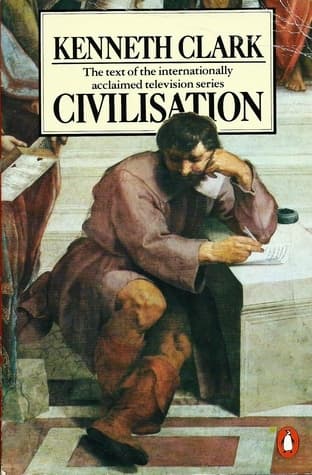
Book Review Summary: Civilization
Introduction
Kenneth Clark's "Civilization" is a sweeping narrative that explores the evolution of Western Europe from the collapse of the Roman Empire to the present day. In this book, Clark delves into the ideas, books, buildings, works of art, and great individuals that have shaped our civilization. He takes readers on a journey through time, from Iona in the ninth century to France in the twelfth, from Florence to Urbino, from Germany to Rome, England, Holland, and America. Along the way, he introduces an extraordinary cast of characters who have given new energy to civilization and expanded our understanding of the world and ourselves.
About Kenneth Clark
Kenneth Clark, Baron Clark, OM, CH, KCB, FBA, was a British author, museum director, broadcaster, and one of the best-known art historians of his generation. In 1969, he achieved international popularity as the writer, producer, and presenter of the BBC Television series, "Civilisation." Clark's expertise and engaging personality made him a prominent figure in the world of art and culture.
Analysis of Views
-
A Comprehensive Overview: Readers praise "Civilization" for providing a comprehensive overview of Western European history, art, and philosophy. They appreciate the way Clark integrates various disciplines and offers insights into the interconnectedness of different aspects of civilization.
-
Engaging Narrative: Many readers find Clark's writing style engaging and accessible. They appreciate his wit and erudition, which make the book enjoyable to read. Clark's ability to convey complex ideas in a concise and captivating manner is highly valued by readers.
-
Great Art and Architecture: The book is particularly praised for its exploration of great works of art and architecture. Readers appreciate the way Clark highlights these masterpieces and discusses their significance in relation to the historical context. The inclusion of specific artists and their contributions adds depth to the narrative.
-
Insightful Perspectives: Clark's opinions and perspectives on art and civilization are often praised by readers. They find his insights thought-provoking and appreciate his ability to draw connections between artistic expression and social conditions. Some readers disagree with his views but still find the book compelling due to its thoughtful analysis.
-
Engaging Personalities: Clark's portrayal of the individuals who contributed to civilization is highly appreciated by readers. They find his descriptions of these individuals fascinating and admire the way he emphasizes their importance in shaping Western culture. The personalities he introduces add depth to the narrative and make the book more engaging.
Reasons for Recommendation
-
Comprehensive Coverage: "Civilization" provides a comprehensive overview of Western European history, art, and philosophy. Readers appreciate the breadth of knowledge presented in the book and find it a valuable resource for understanding the evolution of civilization.
-
Engaging Narrative: Kenneth Clark's writing style is praised for being engaging and accessible. Readers enjoy his wit and erudition, which make the book an enjoyable read despite its academic nature.
-
Great Art and Architecture: The exploration of great works of art and architecture is a significant aspect of "Civilization." Readers appreciate the way Clark highlights these masterpieces and discusses their significance in relation to historical contexts. The inclusion of specific artists adds depth to the narrative.
Reasons for Not Recommendation
-
Outdated Perspectives: Some readers find Kenneth Clark's perspectives on certain aspects of civilization outdated or biased. They feel that he presents a narrow Western focus that may not accurately represent the diversity and complexity of global civilization.
-
Limited Coverage: Although "Civilization" covers a vast amount of material, some readers feel that certain aspects of world civilization are glaringly omitted. They believe that a more comprehensive exploration would provide a more nuanced understanding of civilization's evolution.
Conclusion
"Civilization" by Kenneth Clark offers a comprehensive exploration of Western European history, art, and philosophy from the collapse of the Roman Empire to the present day. Clark's engaging narrative style, insightful perspectives on art and civilization, and portrayal of great individuals who shaped our civilization make it a highly recommended read for those interested in post-Roman empire European history or non-fiction literature in general. While some readers find certain aspects outdated or limited in scope, overall "Civilization" is praised for its comprehensive coverage, engaging narrative, and valuable insights into the evolution of Western civilization.